John Edgar Hoover, widely known as J. Edgar Hoover, was one of the most influential and controversial figures in American law enforcement history. Born on January 1, 1895, in Washington, D.C., Hoover's career spanned nearly five decades, during which he served as the first Director of the Federal Bureau of Investigation (FBI) from 1924 until his death in 1972.
Hoover's tenure at the helm of the FBI was marked by unprecedented longevity and power. Under his leadership, the Bureau grew from a small investigative agency into a powerful and far-reaching institution tasked with enforcing federal laws and combating domestic crime. Hoover's meticulous attention to detail, organizational skills, and dedication to his work earned him a reputation as a formidable adversary to criminals and a staunch defender of American ideals. Throughout his career, Hoover focused on expanding the FBI's jurisdiction and influence, pioneering new investigative techniques, and modernizing the agency's operations. He established the FBI Laboratory, implemented fingerprint analysis as a forensic tool, and spearheaded efforts to combat organized crime, espionage, and terrorism. Hoover's unwavering commitment to professionalism and excellence transformed the FBI into a premier law enforcement agency recognized for its expertise and effectiveness.
However, Hoover's legacy is also marred by controversy and criticism. He was accused of wielding his authority to suppress dissent, target political enemies, and violate the civil liberties of American citizens. Hoover's aggressive tactics, including surveillance, wiretapping, and harassment, raised concerns about government overreach and abuse of power. His contentious relationship with civil rights leaders, activists, and political figures further fueled public scrutiny and calls for reform.
Despite these controversies, Hoover remained a dominant figure in American public life until his death on May 2, 1972. His legacy continues to provoke debate and fascination, with historians and scholars grappling with the complexities of his character and the lasting impact of his leadership on American law enforcement and society.
In essence, J. Edgar Hoover's life and career encapsulate the complexities of power, integrity, and the rule of law in American history. As a towering figure in the annals of law enforcement, Hoover's legacy is a testament to the enduring influence of individuals who shape the course of nations through their vision, leadership, and actions.
J Edgar Hoover quotes
J. Edgar Hoover, the long-serving Director of the Federal Bureau of Investigation (FBI), was known for his commanding presence and strong convictions. "Justice is incidental to law and order."
"The cure for crime is not the electric chair, but the high chair."
"When morals decline and good men do nothing, evil flourishes."
"It is important that the public know that the FBI is not an omnipotent, sovereign agency unto itself, but an agency of the government of the United States."
"The individual comes face-to-face with a conspiracy so monstrous he cannot believe it exists. The American mind simply has not come to a realization of the evil which has been introduced into our midst."
"The FBI is made up of the finest collection of law enforcement talent in the world. Hard work and continuous training keep us prepared for any eventuality."
"We must maintain strong ties between the FBI and the many law enforcement agencies and their officers throughout the nation. We must protect their lives and ensure their safety, as well as keeping them abreast of new developments and trends in criminal activity."
"The FBI has always considered the civil rights and liberties of individuals to be of paramount importance. We are determined to protect these rights and freedoms."
"The fight against crime is a fight to preserve our American heritage and our American way of life."
"The criminal is the product of spiritual starvation. Someone failed miserably to bring him to know God, love Him and serve Him."
These quotes offer insights into Hoover's views on law enforcement, morality, and the role of the FBI in protecting American society.
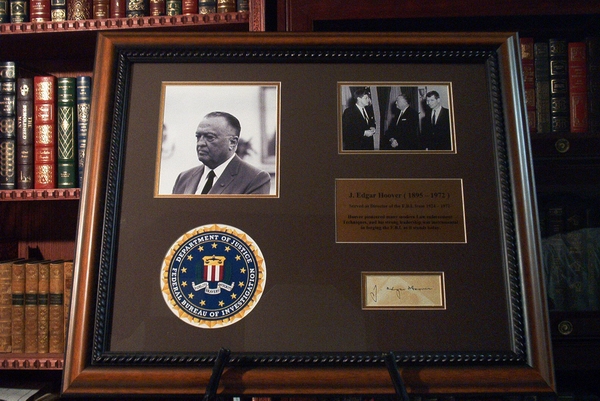
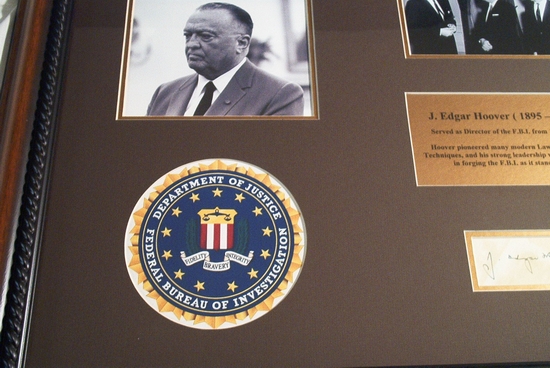
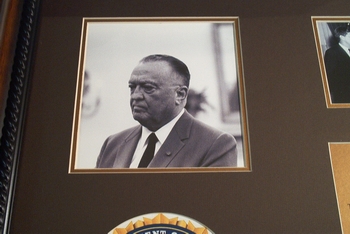
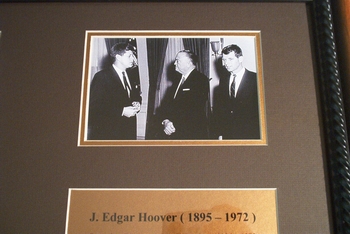
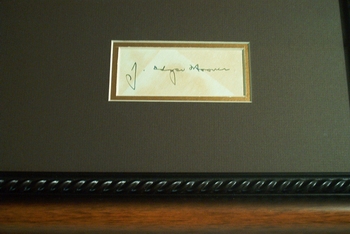
Comments
Post a Comment
Share your best book review and recommendation